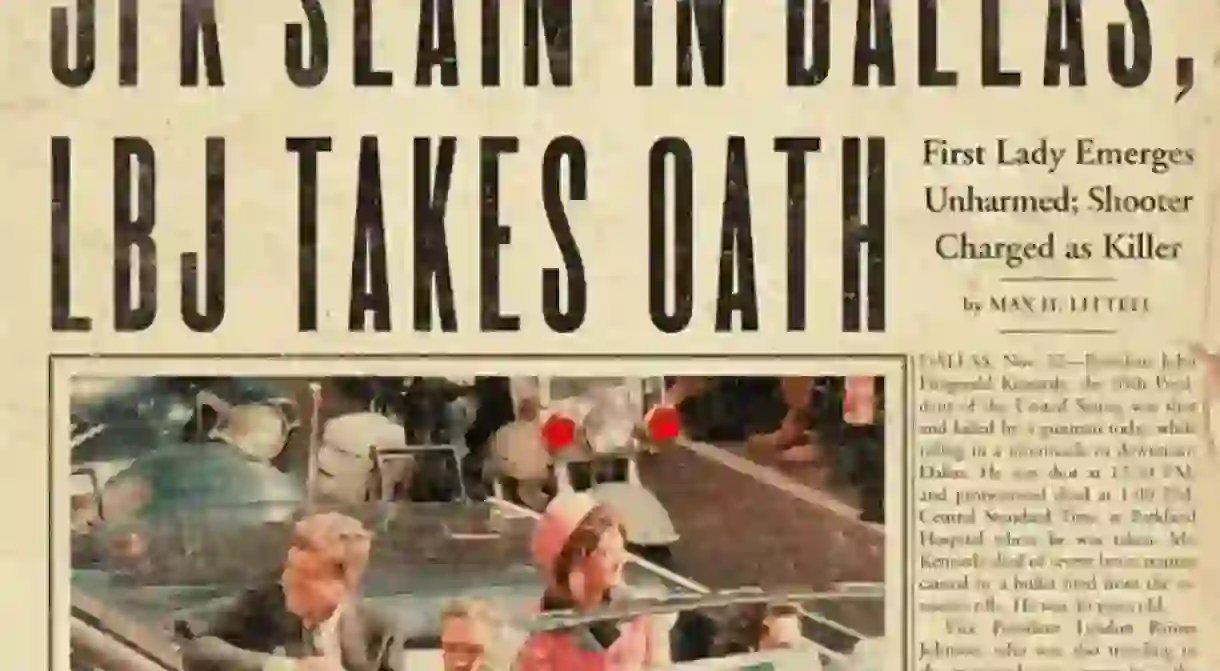The Many Novelized Conspiracies of the JFK Assassination

With the files of the Kennedy assassination now (largely) released to the general public, it may be time to revisit the novels that regard it.
It’s a big day for JFK conspiracy enthusiasts. Current president Donald Trump has announced that thousands of documents kept by the CIA on the Kennedy assassination would be released from confidentiality and accessible to all, further noting that any files still held by the agency would have until April to be prepped for clearance (which, of course, fueled its own conspiracies). The moment partially fulfilled a 25-year promise first made by George H.W. Bush in 1991, that all documents pertaining to Kennedy would be released in 25 years time. That deadline was yesterday.
The baffling November 22, 1963 assassination of John F. Kennedy is so deeply ingrained in American psyche that many claim it as the nation’s first modern trauma. There has been no concrete answer as to what happened or why, and the inquiries abound. Did Lee Harvey Oswald, the charged hitman, act alone or was he part of a bigger cabal? If he acted alone, why do the physics of the bullet wounds indicate otherwise? And why was he shot dead only days later by night club owner and sometime mafia affiliate Jack Ruby? It’s a dizzying topic to dive into, but also a potent one. The event has been dramatized by director Oliver Stone (the film even prompted Bush’s 25-year promise), satirized by TV sitcom Seinfeld, and even speculated by the X-Files who offered their own theory (according to the show, it was the Cigarette Smoking Man who killed Kennedy).
It may be that Stone’s award-winning 1991 film JFK back into a zeitgeist jumped on by TV networks (all three examples mentioned above appeared within five years of each other) but the bevy of novels that have attempted to wrestle their own suppositions into the event have been steadily appearing for years. Because we may never know the truth, evaluating the “best” JFK assassination novel is both a matter of taste and of belief. Take Don Delillo’s Libra, my vote for the best of the bunch, which largely focuses on Oswald, his Russian connections, and the theory that Kennedy was killed to antagonize an American war with Cuba. Another narrative with Oswald at the fore is Norman Mailer’s Oswald’s Tale, a novel-like narrative that attempts to affirm one conspiratorial assumption that Oswald acted alone and for vainglorious reasons.
The earliest attempt to novelize the assassination goes back to the early 70s, and are especially conspiracy heavy. Loren Singer’s The Parallax View gives the assassination a noir-like spin, in which a private investigator chasing after clues uncovers some vast high-power skulduggery. Edwin Shrake’s Strange Peaches (designated a Texas Literary Classic) goes deep into Dallas’s seedy underworld with Jack Ruby at its nexus. Another highlight is The Tears of Autumn, a novel by Charles McCarry, a CIA agent at the time of the assassination, who speculates on some eye-for-an-eye chicanery tied into the assassination, earlier that month, of Vietnamese president Ngo Dinh Diem.
At least three novels use the date alone as titles and cleverly allow their work to center around time and place rather than fictionalize intentions. Bryan Woolley’s November 22 offers a more panoramic 24-hour view surrounding the day, giving an intriguing view of Dallas in a multi-narrative vox poppy style. Adam Braver’s Nov. 22, 1963 also gives a whirlwind one day account of the assassination by focusing on the movements of Jackie Onassis following the shooting of her husband. Stephen King’s less calendrical 11/22/63 veers much further into fantasy with an account of a time traveler who attempts to stop the assassination altogether.
King’s novel appeared in 2011, near the 50-year mark of the assassination. To my knowledge, it is the last major fictionalized undertaking of the assassination to appear before the release of these documents. But with many of them now available to the public, certain theories may progress while others are put to rest. Or maybe not. The JFK assassination has shifted from intrigue to industry; practically a sub-genre by now. I wouldn’t be surprised if the release of these documents doesn’t germinate new flights of imagined subterguge. After all, the CIA has yet to release everything it knows.













